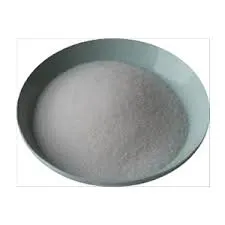- Afrikaans
- Albanian
- Amharic
- Arabic
- Armenian
- Azerbaijani
- Basque
- Belarusian
- Bengali
- Bosnian
- Bulgarian
- Catalan
- Cebuano
- Corsican
- Croatian
- Czech
- Danish
- Dutch
- English
- Esperanto
- Estonian
- Finnish
- French
- Frisian
- Galician
- Georgian
- German
- Greek
- Gujarati
- Haitian Creole
- hausa
- hawaiian
- Hebrew
- Hindi
- Miao
- Hungarian
- Icelandic
- igbo
- Indonesian
- irish
- Italian
- Japanese
- Javanese
- Kannada
- kazakh
- Khmer
- Rwandese
- Korean
- Kurdish
- Kyrgyz
- Lao
- Latin
- Latvian
- Lithuanian
- Luxembourgish
- Macedonian
- Malgashi
- Malay
- Malayalam
- Maltese
- Maori
- Marathi
- Mongolian
- Myanmar
- Nepali
- Norwegian
- Norwegian
- Occitan
- Pashto
- Persian
- Polish
- Portuguese
- Punjabi
- Romanian
- Russian
- Samoan
- Scottish Gaelic
- Serbian
- Sesotho
- Shona
- Sindhi
- Sinhala
- Slovak
- Slovenian
- Somali
- Spanish
- Sundanese
- Swahili
- Swedish
- Tagalog
- Tajik
- Tamil
- Tatar
- Telugu
- Thai
- Turkish
- Turkmen
- Ukrainian
- Urdu
- Uighur
- Uzbek
- Vietnamese
- Welsh
- Bantu
- Yiddish
- Yoruba
- Zulu
Νοέ . 10, 2024 07:07 Back to list
Enrofloxacin Injection Use for Sheep Health and Disease Management Strategies
Enrofloxacin Injection for Sheep An Overview
Enrofloxacin is a broad-spectrum fluoroquinolone antibiotic widely used in veterinary medicine, particularly for treating various bacterial infections in livestock, including sheep. As a powerful therapeutic agent, its application has major implications for animal health, management, and production efficiency, making it a valuable tool for veterinarians and farmers alike.
Mechanism of Action
Enrofloxacin works by inhibiting the bacterial DNA gyrase and topoisomerase IV, which are essential enzymes for DNA replication and transcription. By interfering with these processes, enrofloxacin effectively prevents bacterial cell division, leading to cell death. Its broad-spectrum activity covers many pathogens, including Gram-negative and some Gram-positive bacteria, which makes it effective against various infections commonly seen in sheep.
Indications for Use
In sheep, enrofloxacin is primarily indicated for the treatment of respiratory infections, urinary tract infections, skin infections, and gastrointestinal infections caused by susceptible bacteria. Conditions such as pneumonia, foot rot, and mastitis can significantly impact the health and productivity of sheep; thus, timely intervention with enrofloxacin can lead to improved recovery rates and reduced mortality.
Administration and Dosage
Enrofloxacin injection is usually administered subcutaneously or intravenously, depending on the severity of the condition and the veterinarian’s recommendations. The dosage should be determined based on the weight of the sheep and the specific condition being treated. Typically, the recommended dosage is around 2.5 to 5 mg/kg body weight, administered once daily for several days, as prescribed by a veterinarian. It is critical to follow the guidelines to avoid underdosing or overdosing, as both can lead to treatment failure or adverse effects.
enrofloxacin injection for sheep

Safety and Side Effects
While enrofloxacin is generally considered safe for sheep when used appropriately, it is essential to be aware of potential side effects. Some sheep may experience mild reactions at the injection site, such as swelling or tenderness. In rare cases, systemic reactions such as gastrointestinal upset, neurological signs, or nephrotoxicity may occur. It is crucial for veterinarians to monitor treated animals for any adverse reactions and adjust treatment protocols as necessary.
Additionally, enrofloxacin, like other antimicrobials, poses a risk of developing antimicrobial resistance if used indiscriminately. Therefore, it should always be administered based on bacterial culture and sensitivity testing whenever possible, ensuring that the targeted pathogens are susceptible to the treatment.
Withdrawal Times and Food Safety
Another important consideration when using enrofloxacin in sheep is the withdrawal period before livestock products can enter the food chain. According to regulations, the withdrawal period for enrofloxacin can vary, but it is generally recommended to wait at least 14 days before slaughtering the treated sheep. It is crucial for farmers to adhere to these guidelines to ensure food safety and comply with regulations regarding antibiotic residues in meat and milk.
Conclusion
Enrofloxacin injection serves as an essential therapeutic option for managing bacterial infections in sheep. Its broad-spectrum effectiveness, coupled with its relatively safe profile when used properly, makes it an invaluable resource in veterinary practice. However, responsible use is critical to minimizing the risk of resistance development and ensuring the safety of food products. By working closely with veterinarians and adhering to best practices, sheep producers can enhance the health and welfare of their flocks while maximizing production efficiency. As the field of veterinary medicine continues to evolve, ongoing research and education regarding the use of enrofloxacin and similar antibiotics will be vital in promoting sustainable livestock management practices.
-
Guide to Oxytetracycline Injection
NewsMar.27,2025
-
Guide to Colistin Sulphate
NewsMar.27,2025
-
Gentamicin Sulfate: Uses, Price, And Key Information
NewsMar.27,2025
-
Enrofloxacin Injection: Uses, Price, And Supplier Information
NewsMar.27,2025
-
Dexamethasone Sodium Phosphate Injection: Uses, Price, And Key Information
NewsMar.27,2025
-
Albendazole Tablet: Uses, Dosage, Cost, And Key Information
NewsMar.27,2025













